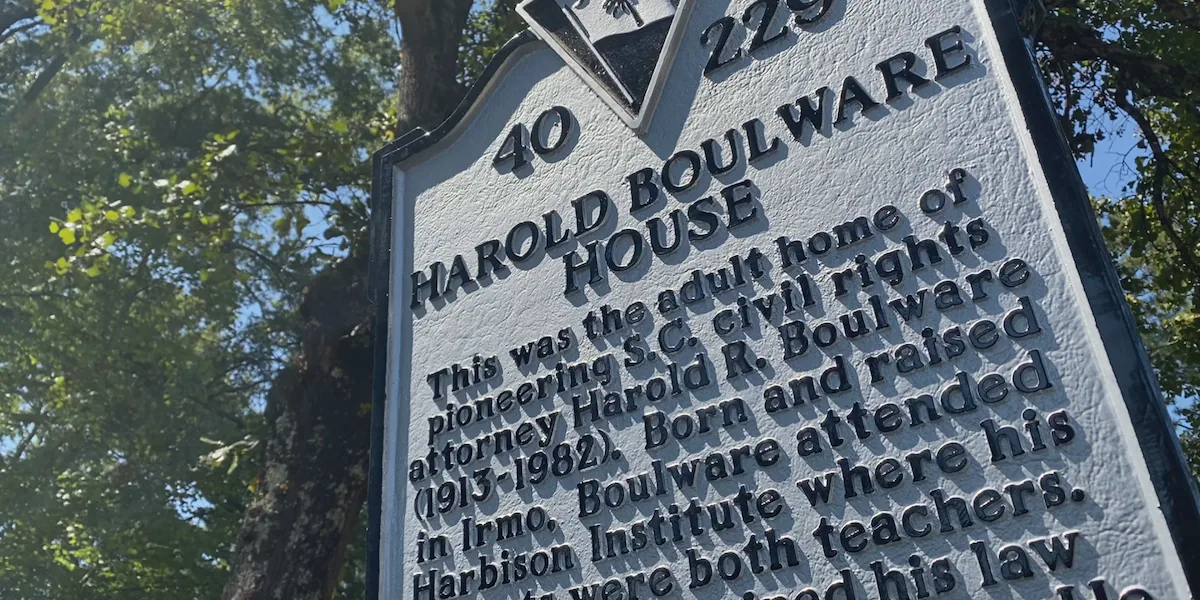
IRMO, S.C. (WIS) – On Tuesday, the African American Historical Society of Irmo unveiled a new historical marker for local civil rights hero Harold Boulware, Sr.
Boulware was a civil rights attorney and judge. He died in 1983. The new marker is located outside of his house, located on 101 Lake Murray Blvd.
After attending Howard University School of Law in Washington, D.C., the Irmo native brought his fight back home.
In 1950, he filed the notable case Briggs vs Elliott, working alongside other civil rights icons, including Thurgood Marshall. The case pioneered the end of segregation in schools across the nation was the first of five cases that became known as Brown v. the Board of Education, which ultimately dismantled segregation in schools.
“Harold Boulware was determined to fight for justice for all. There would be no civil rights movement in this state without Harold R. Boulware,” said Bobby J. Donaldson, University of South Carolina director of civil rights history and research.
Boulware also fought for equal pay for African American teachers in South Carolina. He went on to become the first African American associate judge of the Columbia Municipal Court, using his role to advocate for equal justice and fairness.
His son Marion Boyd, Sr., said his father’s fight for equality was often met with hate.
“We used to get shot up every Friday and Saturday night by the Ku Klux Klan,” he said. “On some weekends, we had to leave home so we would not have to sleep on the floor all night.”
Despite that, Boulware’s grandson, John Chism, said he remained resilient.
“He hid in the trunks to get to and from the courtroom, and it was his determination and courage, to me, that stood out. He demonstrated that without talking, without words,” he said.
Lawrence Coleman of the African American Historical Society of Irmo said recognizing Boulware with the historical marker helps preserve his legacy.
“It’s an honor to have it here for everyone to see because a lot of people pass this way going to work, going back into irmo and didn’t even know about judge boulware or know about his history but with this marker today, a lot of people are going to realize the significance of judge boulware and the home he lived in and the fight he fought for civil rights,” he said.
The historical society is now working to get the name of the road in front of Boulware’s house changed in his honor.
Feel more informed, prepared, and connected with WIS. For more free content like this, subscribe to our email newsletter, and download our apps. Have feedback that can help us improve? Click here.



